-
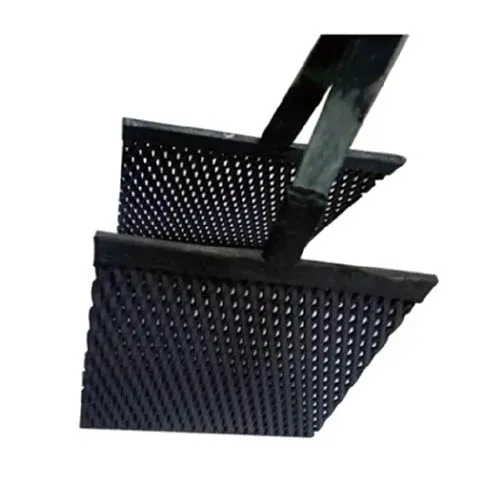
Titanium-based lead dioxide (Ti/PbO2) is an electrode with several PbO2 layers applied to a Ti substrate. Lead dioxide electrodes are used as an anode material in electrochemistry. Ti/PbO2 electrodes offer low resistivity, good corrosion resistance even in low-pH medium, and a high overvoltage for the evolution of oxygen in sulfuric- and nitric-acid-based electrolytes.
As its high oxygen evolution overvoltage, the Ti/PbO2 electrodes are popular for use in wastewater cleaning. The organic materials present in wastewater can be decomposed efficiently by anodic oxidation. When water electrolysis is carried out with this electrode, high concentration ozone can be generated. This electrode can also be utilized as an anode for electrolysis ozone evolution.
-
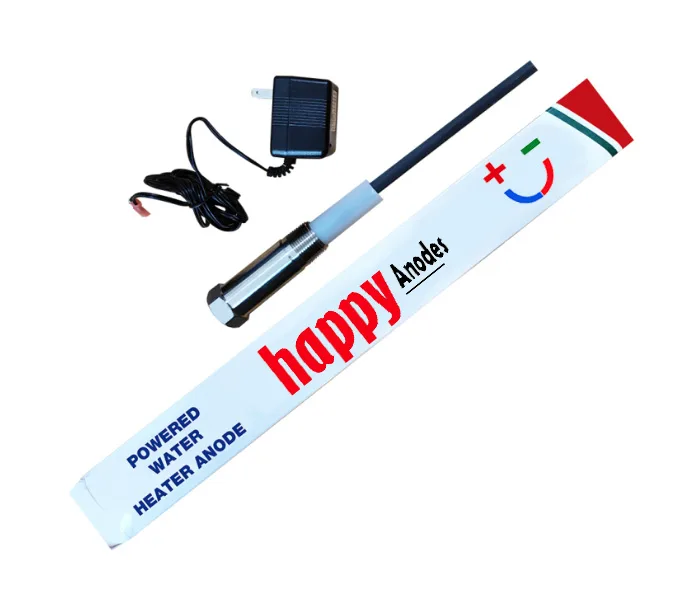
One of the most commonly found factors limiting the life of water heater is interior corrosion. The water inside the heater tank can be very harmful to the system as the harsh minerals it contains can build up and eat away at the steel surfaces, a process which is only worsened by the high water temperatures.
Anode rods are the most important factor in preventing corrosion and leaks in water heaters. The anode rod delivers electrons into the water that help to create an environment that diverts corrosive action away from the tank walls to the anode rod. Thus, it prolongs the service life of the inner tank and connected heating pipes.
Different from traditional sacrificial anodes, which degrade themselves to protect the water heater tank, this powered anode rod is a more economical and effective option for prolonging the life of water heater tank, as well as softening water and removing the dirt.
This powered anode rod is made with high-tensile titanium coated with Ir–Ta mixed metal oxide catalyst. It is a stable material with low consumption rate, ensuring a lifespan in excess of 10 years. Activated by the electrical current, it provides sufficient electrons to protect the steel water heater tank steadily and continuously. These anodes do not need to be changed as frequently as traditional anode rods as the powered anode rod does not disintegrate. This also means no residue is left in the water heater tank. In addition, it is excellent at removing the sulfurous “rotten egg” smell from the water heater tank.
-
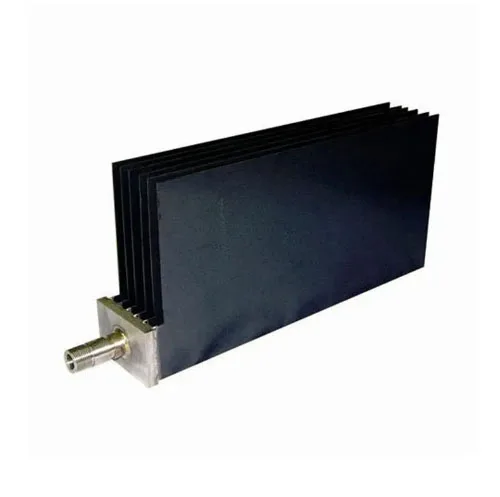
The chlorine evolution reaction (CER) has practical applications in the chlor-alkali industry and electrochemical wastewater treatment. Efficient, stable, and cost-effective electrodes are critical for energy efficient chlorine production, water disinfection, and wastewater treatment.
Ruthenium oxide coated anodes are regarded as the optimum choice in numerous industries due to its strong corrosion resistance, low overpotential for chlorine evolution, great physical stability and its environmental safety. Compared with traditional electrodes, ruthenium oxide coated electrodes have better electrochemical stability in sulfate/chloride environments and a longer service life.
Our electrodes have been utilized in industries such as the chlor-alkali industry, sodium hypochlorite production, seawater electrolysis, water treatment, electrowinning, etc.
-
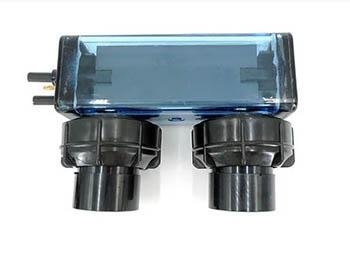
Productivity:20g/hour;30g/hour;50g/hour
Usage: Swimming pool water treatment
Core technology: MMO Coated Titanium Anode
Certificate: ISO9001
Warranty of core components:3 years
Delivery time: 20 days
Customized design available
-
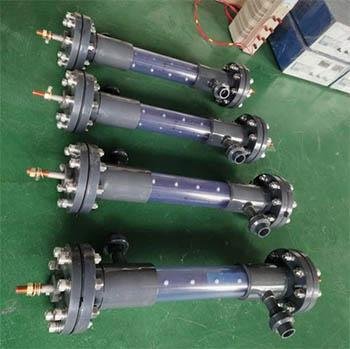
Substrate: GR1 Titanium
Shell: UPVC
Shape: tubular
Coating: Ru-Ir coating
Coating Thickness: about 10 microns
Demision: customized available Delivery time:20 days
-

Base Material: Titanium (Gr1, Gr2)
Shape: rod, strip, disc, plate, mesh, wire, tube or combinations and or assemblies of these materials. (customized)
Typical working conditions:
Recommended salt concentration: 3-4 g/l
Water temperature: from 25 to 37 °C
PH: 6-8
-
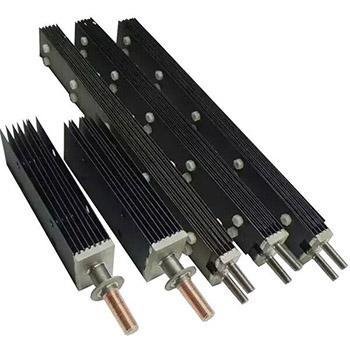
MMO Electrode:
Substrate: Pure titanium Gr1 ASTM B338
Coating: Mixed Metal Oxide (Ru-Ir oxide)
Application:
Nuclear power cooling water antifouling treatment
Ballast water treatment of the large ship
Sodium Hypochlorite generator
Offshore cathodic protection.







